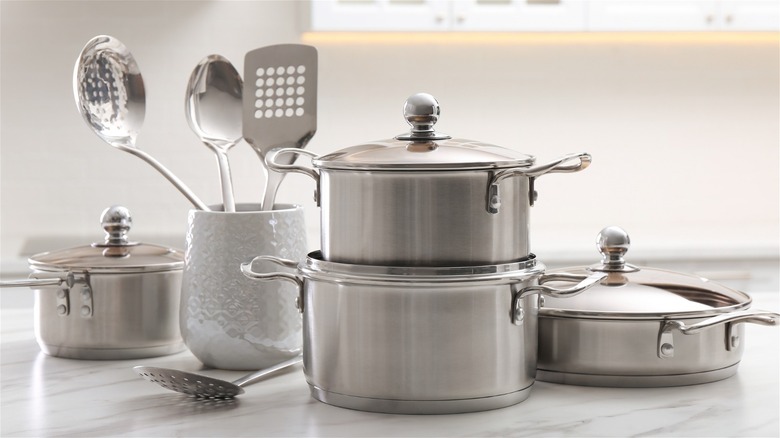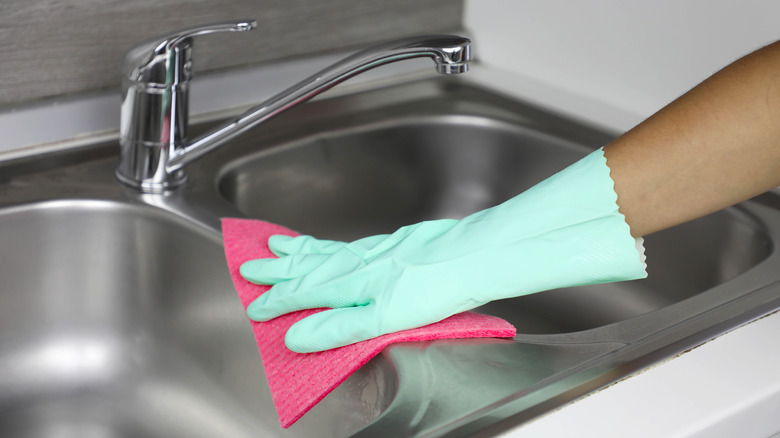It Pays To Polish Your Stainless Steel The Next Time You Bake
Did you know that one of the most common baking ingredients is actually really effective for polishing your metal surfaces? It's not eggs or butter, and while baking soda is great to clean with, we're not talking about that one either. It's actually flour! You see, flour acts as a gentle abrasive to smooth out metal surfaces and achieve a sparkly finish. Give it a try during your next baking project, but have sunglasses ready to protect your eyes from the shine.
Flour polishing works on any surface made of stainless steel (kitchen sink, cookware, appliances, etc.). This quick and easy trick works against dullness, water spots, soap scum, and dried food. With just a little flour, a kitchen towel, and a little elbow grease, you're well on your way to smudge-free steel.
You'll want to start with a clean surface, so give it a quick spritz with disinfecting spray, and then dry it off with a rag. Extra emphasis on dry – any trace of moisture will be absorbed by the flour and transform it into a messy paste. When that's done, lightly sprinkle flour evenly over the surface. You won't need much – about ¼ cup is all it takes. To contain the mess when working with appliances or cookware, sprinkle the flour onto your towel and apply it to the area of concern. Using circular motions, buff the flour into the metal. When you're done, wipe off the extra flour and admire that shine.
Why you should use flour
If you always have flour on hand, it may be time to ditch those other methods for polishing your stainless steel. Chemical sprays and powders are effective for cleaning, but they won't always leave your metal with the reflective surface you desire. For a kitchen that sparkles and feels brand new, flour is the way to go.
Aside from its power to turn your kitchen sink into a mirror (a small exaggeration), flour has a lot of appealing properties as a polish. It's almost always in your kitchen, cheap, effective, and reduces your exposure to harsh chemicals. The fine flour particles are able to get into every crevice to buff out imperfections and dislodge any caked-on grime that you can't reach with a normal spray-and-wipe approach.
Be mindful of larger crevices that the flour could get stuck in and whatever you do, don't wash it down the drain. A little is ok, but consistent exposure to flour can really do a number on your pipes, and repairing damaged plumbing can be a costly affair (via Marco Plumbing). Wipe away excess flour with a rag or use a vacuum to suck it up. Getting into a monthly polishing routine will do wonders for your kitchen, but those who love shiny kitchens can do it more often. The next time you break out that bag of flour (or open a new one) to bake, check whether your metal surfaces are in need of some love and care.

